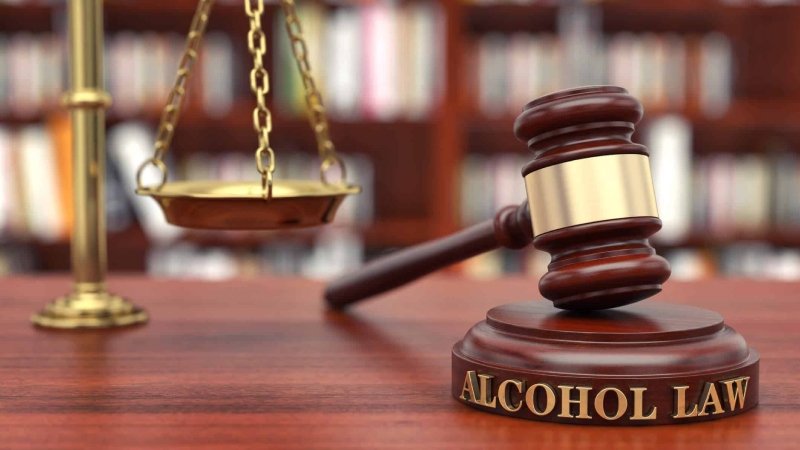According to data collected by Gallup from July 3–27 of last year, 62% of Americans aged 18 or older had “occasion to consume alcoholic beverages, including liquor, wine, or beer.”
North America is the leading market for alcoholic beverages in the world, with more than 30% market share. Because of the high demand from consumers, many people want to try their luck and operate their own business selling or distributing alcoholic beverages.
Alcoholic beverage lawyer Michael Raine says going through alcohol regulations can be overwhelming, but with the assistance of the right lawyer, you can have a smoother path to compliance. Alcoholic beverage lawyers can help protect your operations, from handling licensing specifics to managing marketing limitations.
Overview of Alcoholic Beverage Regulations
The regulations governing the sale, distribution, and consumption of alcoholic beverages vary widely from state to state, so it’s important to familiarize yourself with the specific laws that apply to your business operations.
Alcoholic beverage regulations cover a range of areas, including licensing, labeling, advertising, and taxation. These regulations promote responsible consumption, prevent underage drinking, and regulate the industry to ensure fairness and transparency.
To stay compliant, it’s recommended to work closely with experienced alcoholic beverage lawyers who can handle the legal system. Your lawyer can help you interpret and apply the regulations to your specific situation, ensuring that your business operates within the boundaries of the law.
Failure to comply with these regulations can result in hefty fines, loss of licenses, and even criminal charges.
Licensing and Permitting Processes
Handling the licensing and permitting processes in the alcoholic beverage industry requires a thorough understanding of the specific requirements in your operating state. Each jurisdiction has its own set of rules and regulations governing the sale and distribution of alcoholic beverages.
To start the process, you must first determine the type of license or permit you need based on your business activities, whether manufacturing, distributing, selling, or serving alcohol.
Once you have identified the appropriate license, gather all the necessary documentation, and submit a detailed application to the relevant regulatory body.
Marketing and Labeling Compliance
To comply with regulations in the alcoholic beverage industry, you must understand and adhere to marketing and labeling requirements. In marketing, make sure your advertisements don’t target minors or make false health claims.
Your labeling must accurately represent the bottle’s contents, including alcohol content, health warnings, and production details. Failure to comply with these regulations can result in fines, penalties, or even the revocation of your license.
Make sure your marketing materials don’t glamorize excessive drinking or portray irresponsible behavior. Labels should be clear, easy to read, and follow specific guidelines set by regulatory bodies.
Work closely with lawyers to help you handle the marketing and labeling requirements, ensuring your brand stays compliant and avoids legal issues.
Legal Advocacy for Industry Matters
For those in the alcoholic beverage industry, having legal advocacy on industry matters is important for handling complicated regulations and securing your business interests effectively.
Alcoholic beverage lawyers will represent your interests in various industry matters, including licensing, permits, distribution agreements, mergers and acquisitions, intellectual property protection, and regulatory compliance.
Legal advocates help you understand the state and federal laws governing the production, distribution, and sale of alcoholic beverages. They will guide compliance with labeling requirements, advertising restrictions, and trade practices. In disputes or regulatory issues, they can represent your business in negotiations, administrative proceedings, or litigation.
With the ever-changing alcohol regulations, having an expert in the industry can provide you a competitive advantage and peace of mind.
By proactively seeking legal advocacy for industry matters, you can lessen risks, guarantee compliance, and focus on growing your business successfully.
Importance of Ongoing Compliance Monitoring
Regularly monitor compliance to maintain adherence to alcohol regulations and avoid potential legal issues in the industry. By consistently monitoring compliance, you can guarantee your business operations align with the evolving regulatory system. This ongoing monitoring allows you to catch any deviations from compliance and address them before they escalate into more significant problems.
Implementing a strong compliance monitoring system demonstrates your commitment to operating within the legal framework and will help you avoid hefty fines or even the suspension of your license.
Regular checks on your practices, such as age verification procedures, labeling requirements, and sales restrictions, can help you with any regulatory changes and ensure that your business remains in good standing.
Ongoing compliance monitoring can also enhance consumer trust in your brand. By showing that you take regulatory compliance seriously, you can build a reputation as a responsible and trustworthy player in the alcohol industry.
Conclusion
Alcoholic beverage lawyers are important in guaranteeing regulations and compliance within the industry. These legal professionals provide essential support and guidance to businesses in the alcohol sector.
By staying informed and advocating for their clients, alcoholic beverage lawyers help maintain a level playing field and uphold the industry’s integrity.
